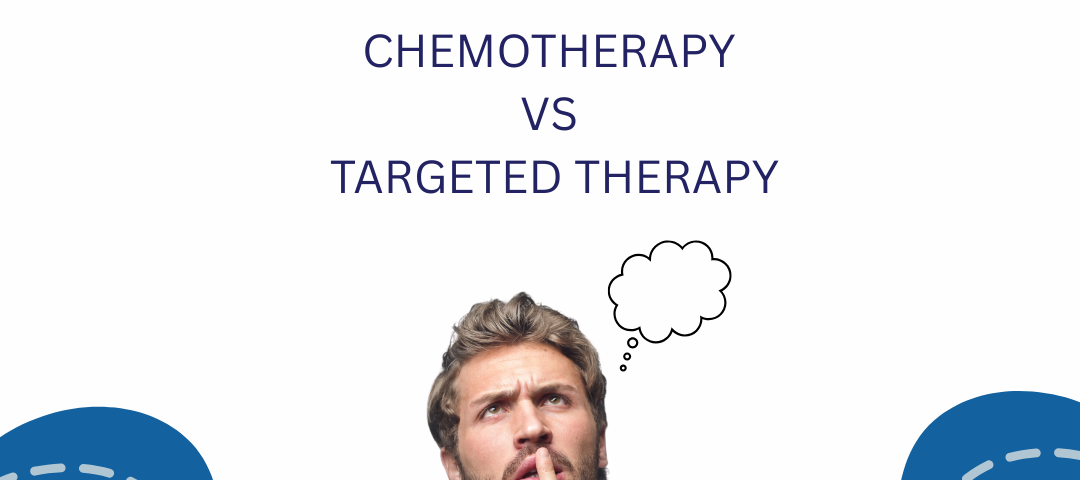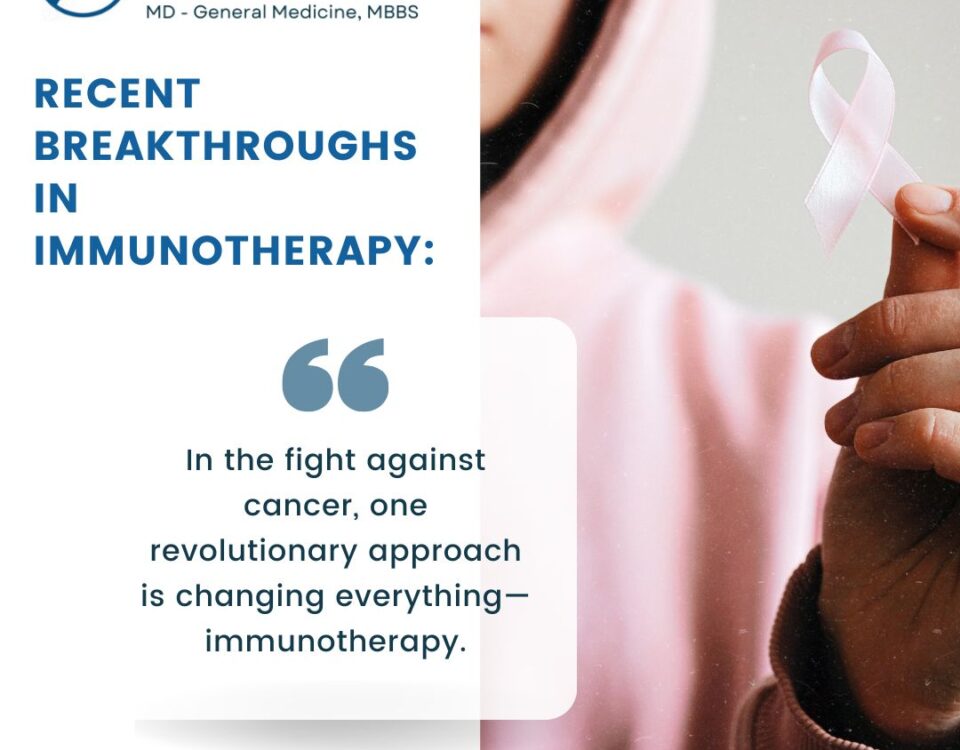Understanding Your Cancer Treatment Options
Cancer treatment has evolved rapidly in recent years, offering patients more precise and effective options. Two common treatment types that often raise questions are chemotherapy and targeted therapy. While both aim to destroy cancer cells, their methods, side effects, and results can vary significantly. In this blog, we’ll explore the key differences between chemotherapy and targeted therapy and help you understand which approach might be right for your condition.
What is Chemotherapy?
Chemotherapy is one of the oldest and most well-known cancer treatments. It involves using cytotoxic drugs to kill fast-growing cells throughout the body. While effective, chemotherapy doesn’t distinguish between cancerous and healthy fast-dividing cells, which is why it often causes side effects.
How Chemotherapy Works:
- Drugs enter the bloodstream and travel throughout the body.
- They target rapidly dividing cells (cancer cells, hair follicles, blood cells, and digestive tract cells).
- Usually given in cycles (every few weeks), allowing the body to recover between treatments.
Common Chemotherapy Side Effects:
- Hair loss
- Fatigue
- Nausea and vomiting
- Low immunity due to decreased white blood cells
- Mouth sores
- Loss of appetite
What is Targeted Therapy?
Targeted therapy is a newer form of treatment that focuses specifically on genes, proteins, or the tissue environment that contribute to cancer growth. Rather than attacking all fast-growing cells, it aims to disrupt the cancer cells’ specific processes, such as the signals that cause them to grow or divide.
How Targeted Therapy Works:
- Drugs bind to specific molecules on or inside cancer cells.
- Stops cancer growth by interfering with specific cellular functions.
- Usually administered orally or through IV infusion.
- Requires molecular testing or genetic profiling to identify if the patient’s cancer will respond to the therapy.
Common Targeted Therapy Side Effects:
- Skin rash or dryness
- Diarrhea
- Liver problems
- High blood pressure
- Fatigue (milder than chemotherapy in many cases)
Key Differences: Chemotherapy vs. Targeted Therapy
| Feature | Chemotherapy | Targeted Therapy |
|---|---|---|
| Mechanism | Attacks all fast-dividing cells | Targets specific cancer cell markers |
| Specificity | Non-specific | Highly specific |
| Side Effects | Often severe and affect multiple systems | Typically fewer and more localized |
| Testing Required | No genetic testing required | Requires molecular/genetic testing |
| Effectiveness | Effective in many cancer types | Depends on the presence of target molecules |
| Usage | Widely used, especially for advanced cancers | Common in personalized cancer treatment plans |
Which One is Right for You?
The decision between chemotherapy and targeted therapy depends on several factors:
- Type and stage of cancer
- Genetic profile of the tumor
- Overall health condition of the patient
- Previous treatments and responses
In some cases, oncologists may combine both chemotherapy and targeted therapy to achieve better results. Dr. Pritam Kataria specializes in tailoring treatment plans to suit individual needs using advanced diagnostics, including molecular profiling.
Real-Life Example: Lung Cancer
For instance, in non-small cell lung cancer (NSCLC):
- Patients without specific mutations may be treated with chemotherapy.
- Patients with EGFR or ALK mutations benefit more from targeted therapy drugs like erlotinib or crizotinib.
This approach improves treatment response and reduces unnecessary side effects.
The Role of Molecular Testing
Molecular testing has become a game-changer in oncology. By analyzing the genetic mutations in a tumor, doctors can:
- Identify potential treatment targets.
- Predict response to targeted drugs.
- Avoid trial-and-error methods.
- Personalize the entire treatment plan.
If your oncologist recommends molecular testing, it is usually done through a biopsy sample or liquid biopsy (blood test).
Advantages of Targeted Therapy Over Chemotherapy
- Fewer off-target effects
- Often better tolerated over long-term use
- Can be taken orally (in many cases)
- Suitable for patients who are too weak for intensive chemotherapy
However, not all cancers have identifiable targets, which is why chemotherapy still remains a crucial pillar in cancer treatment.
Frequently Asked Questions (FAQs)
1. Is targeted therapy better than chemotherapy?
It depends on the cancer type and genetic markers. Targeted therapy is often more precise but isn’t suitable for all cases.
2. Can I switch from chemotherapy to targeted therapy?
Yes, if your cancer develops a targetable mutation or stops responding to chemo, your doctor might change the plan.
3. Is targeted therapy a cure?
It is not usually a cure but can control cancer effectively for longer durations with fewer side effects.
4. Does targeted therapy work for all types of cancer?
No, only cancers with specific mutations (like HER2, EGFR) can benefit from targeted drugs.
5. How do I know if I qualify for targeted therapy?
Your doctor will recommend molecular testing to find out if your tumor has a targetable mutation.
Final Thoughts
If you or a loved one has been diagnosed with cancer, understanding your treatment options is essential. With advancements in cancer science, precision medicine is helping patients live longer and better lives. Dr. Pritam Kataria offers expert guidance, personalized treatment plans, and cutting-edge diagnostics to help you make informed decisions.






